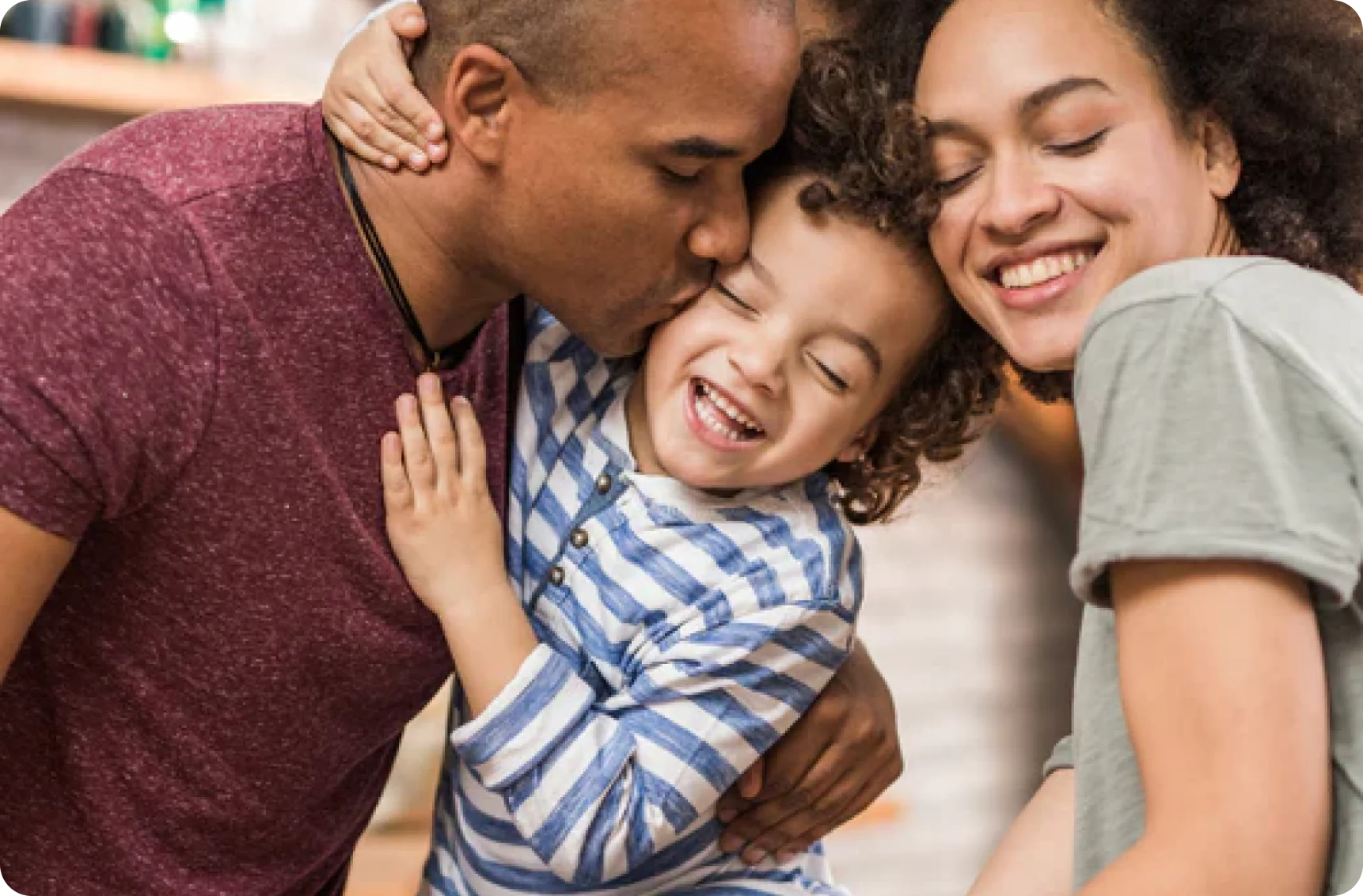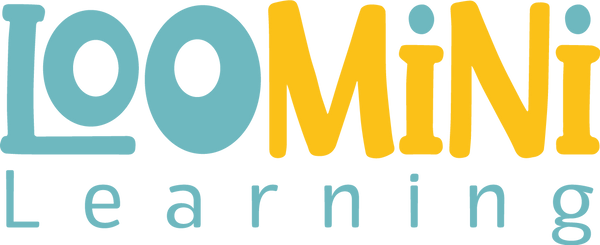Social-emotional learning (SEL) can be broken down into six stages. These phases highlight the key concepts of how your child responds to the world through Social Emotional Learning. Because our emotions immediately affect life and our social interactions reflect our inner perspectives.
The six stages of SEL:
- Self-Awareness
- Self-Management
- Social Awareness
- Responsible Decision-Making
- Relationship Skills
- Future Self
Self-Awareness
To be self-aware is to be conscious of yourself. On a day-to-day basis, that means being conscious of what you're thinking, how you're feeling, and what behavioral patterns you're acting on each day, all of which are essential aspects of social emotional learning. Believe it or not - this is hard to do! It's a skill you grow, and it takes practice.
Teaching a child this ability early on is really beneficial. Recognizing their thoughts and feelings, a fundamental component of what is social emotional learning, will improve their conduct and inspire constructive activities. It guides them via
Self-Management and Responsible Decision Making. Understanding yourself forces you to establish a relationship with yourself, which helps them build healthy relationships. You can't love or respect yourself without a relationship!
Teaching Self-Awareness
The key to self-awareness is honesty! Being honest allows you to recognize your thoughts, feelings, and actions.
Start by teaching your child why social emotional learning is important, emphasizing the value of self-awareness and the importance of truth. Lies, including lying to yourself, lead to deception and illusion. It can lead to hurting yourself or others.
Once your child understands why is social emotional learning important, it's easier for them to learn self-awareness. Start with the basics of helping them tune into their bodies. As youngsters use technology more, interacting with the five senses—touch, sight, smell, sound, and taste—has grown difficult.
Loomini Learning offers engaging sensory crafts you can construct to help your child learn about themselves and their surroundings. Our box has crafts that will help your child connect through breathwork, build a good belief system with affirmations, and more. Find out more here.
Self-Management
- Once your child understands their emotions, they can self-manage. That controls, changes, and regulates their thoughts, feelings, and actions. These abilities improve stress management, organizing, goal planning, breaking negative habits, and self-discipline.
- Naturally, this period will help your child with Responsible Decision-Making and Future Self. It also helps people endure difficult situations and sentiments created by others to preserve excellent connections.
How to Teach Self-Management
Teaching self-management, a crucial aspect of social emotional learning, requires comprehension. Understand why you feel, so your child may act correctly and self-manage. Tools for recognizing feelings and figuring out where they come from can help your child use their own resources to change their point of view and tap into higher-frequency emotions.
We all have these ways to control our thoughts, actions, and feelings because we are in charge of how we respond to things.
As a result, self-management helps children address impulse control. Impulse control will affect how individuals spend and focus on time, energy, money, belongings, and abilities as adults. They will feel more confident and secure in themselves in these areas.
Loomini's "Emotion Identifiers" and "Energy Shifters" teach kids self-care in a fun and creative way!
Social Awareness
Social awareness helps you understand other people, look at things from their point of view, notice different groups of people, and value them. It helps you make and keep good friends, especially when you're doing social and emotional learning to help your family, school, and community.
About equity and diversity, greater social awareness can assist your ability to understand the perspective of and empathize with other individuals, particularly surrounding characteristics like gender, race, religion, age, culture, class, and financial circumstances. It will ensure that your ability to make decisions in social settings like school takes diversity into account.
How to Teach Social Awareness
The key to teaching social awareness is understanding how to relate to others. Positive interactions are based on competencies promoted by SEL, like empathy, respect, kindness, listening actively, cooperation, and fairness. And don't forget the golden rule to "treat others how you would like to be treated."
Responsible Decision Making
Responsibility includes making excellent decisions based on personal goals, ethics, safety, and social norms. It demands you to weigh the pros and drawbacks of several possibilities, know your skills and weaknesses, and know when to ask for help when making key decisions.
Every choice you make in life impacts your future in ways big and small. Not to be dramatic, but this skill can sometimes be the make or break in determining your child's future path. Or, it can at least help in deciding what's for dinner. At least that's always a debate in our house!
How to Teach Responsible Decision Making
The key to teaching responsible decision-making is making positive decisions. Problem-solving skills go a long way in teaching your child to quickly analyze a situation and use their logical brain to make quick decisions supported by practicality.
By pairing these skills with the emotional skills from the previous stages, they can also take emotional factors into account to make an overall balanced decision. Looming offers a multitude of problem-solving crafts, including fun puzzles and interactive games to sharpen your child's quick wit! Learn more here.
Relationship Skills
You can build and keep good, mutually satisfying relationships by connecting with people in a positive way and paying attention to how they feel in different situations and social interactions. There are also skills like listening, talking, understanding what is right and wrong in social situations, settling, judging feelings, beliefs, and values, and having empathy for others.
Relationship skills are important not only at home with family and friends, but also at school with peers and teachers and at work with coworkers and bosses. If you can get along with the people you learn and work with, you help make school or work a better place.
How to Teach Relationship Skills
Treating others how you want to be treated is the key to teaching relationship skills. The focus should be on the other person and how to treat them positively instead of yourself. When that happens, relationships will work better.
Scenario play, a valuable component of what is social emotional learning in the classroom, can teach how to resolve conflicts by looking at some main ways they like to be treated and asking them if they are treating the others involved in the conflict that way, i.e., are you being respectful to others, empathetic, kind, cooperative, fair, and listening actively? If they find they are not, they try to correct it.
Future Self
Part of social-emotional learning is helping children to define their future selves. What kind of people do they want to be? What kind of lives do they wish to live? Recognizing that they have control over these aspects of their lives is a core concept of social-emotional learning. This sense of agency and control is crucial if we want them to reach their full potential.
How to Teach Future Selves
Only half of the equation in promoting our children's growth is encouraging them to dream big and aim high. Beyond the professional success, celebrity status, or beautiful houses they (or you!) might wish for now, we also encourage our children, through social emotional learning, to ask themselves.
What do I want my future to look like in terms of my personal goals?
What changes do I want to see in the world?
What does my home feel like?
What are my relationships like?
What causes and movements matter to me?
What are your thoughts on SEL? Is it important for schools to incorporate SEL in teaching our children? Let us know in the comments below!



